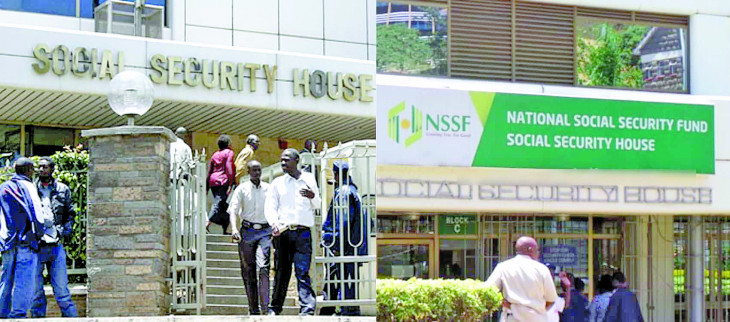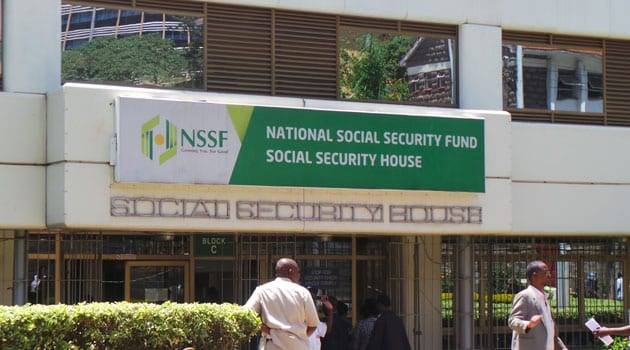Watchdog raises red flag on cash returned to NSSF

Payment to Kenyan retirees and their beneficiaries in excess of Sh266 million was returned to the National Social Securities Fund (NSSF) in the financial year ended June 2021, raising audit queries by the Auditor General.
In her report of the fund’s financial performance for the year in review, Auditor General Nancy Gathungu flagged those concerns whose explanation, she said, was not provided for failure to clear the long outstanding returned benefits for the years dating back to 2012.
According to the audit report, the accuracy of net assets available for benefits worth over Sh1.4 billion could also not be appropriately established. “The long outstanding deposits are receivables but are incorrectly included in the payables balance…in the circumstances, the accuracy, completeness and fair statement of the payables and accruals balance totalling Sh1,431,691,147 as at June 2021 could not be confirmed,” read Gathungu’s report.
Further, the report found that the fund deliberately failed to record by omission of over Sh16 million it had invested but earned income interest from corporate bonds. National Social Securities Fund largely makes handsome returns by investing in government securities, corporate bonds, equities, properties and other long-term asset vehicles besides deposits.
Partial reconciliation
But NSSF’s Communications boss repulsed the claims in an write-up to Business Hub, citing partial reconciliation process for the inconsistency in the amounts in question.
“It should be noted that bank reconciliation is a continuous process. The outstanding items are largely due to timing differences for contributions deposited directly into the bank accounts before the employer presents the detailed returns for receipting,” reads a statement by the fund’s Manager – Public Relations and Communications Christopher Khisa.
Reconciliation is an accounting process that compares two sets of records to check that figures are correct and in agreement.
The process is used to ensure that the money leaving an account matches the actual money spent and is ideally done by making sure the balances match at the end of a particular accounting period.
The bond, according to NSSF, was expected to mature in August 2021 “and had been booked accordingly, but it was received earlier in June 2021.”
“The 16-million-shilling interest from the bond in question was actually received by our Fund Custodian bank in June 2021 together with the principal and was properly accounted for in the books of accounts and this was confirmed by the Funds custodians,” said Khisa.
The latest revelations by the Auditor comes amid concerns that over 10 million Kenyans are sleepwalking into a retirement crisis as they fall short of adequate savings once they leave work. Statistics show that less than 10 per cent of Kenyan population retire financially independent.
Retirement years
One of those reasons being cited for the disturbing state is that, when saving for retirement, most people underestimate how much they will have to pay for medical expenses during their retirement years.
NSSF offices have become synonymous with long queues of beneficiaries seeking their benefits with never-ending follow-ups, despite recording a relatively improved performance in net earnings for the year just ended.
The net increased Scheme’s income grew by over Sh35 billion in the year ended June 2021 compared to Sh14 billion it announced in a similar period a year earlier.
The decline in contribution and benefits was attributed to Covid-19 lockdown which affected businesses and movement in the fourth quarter. A net increase in scheme funds of Sh14.5billion was achieved in 2020.
Last year, however, saw member contributions nearly triple owing to the lifting of all movement restrictions that had been put in place to curb the spread of Covid-19.
Member contribution declined by 2.4 per cent from Sh15.10 billion in 2019 to Sh14.733 billion in 2020, while benefits paid to members lessened by 10.2 per cent from Sh4.94 paid in 2019 to Sh4.43 billion paid in 2020.
In an attempt to increase member contributions to the fund through the controversial NSSF Act of 2013 which had sought to increase workers monthly deductions was is September declared unconstitutional by Employment and Labour Relations Court.














